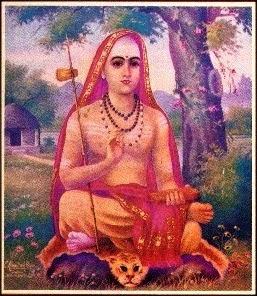Belief in the reality of unreal :4.

Thursday, Dec 19, 2013. Vedantham : Belief in the reality of unreal : Mandukya Upanishad. Chapter-4. Karika-75. Part-4. Mind transcended is ego annihilated. It is for the ego-centre that we have the world of ignorance experienced in terms of birth and death; joys and sorrows; success and failures, etc. Once the ego has been ended, there can be no more reincarnations fo the 'jiva' ( jivatma ). The very purpose of this endless pilgrimage through repeated incarnations is but to rediscover ourselves. Once the hidden 'Self ' has been discovered there is no more of this hide and seek play. When you have discovered yourself to be nothing other than Self, no more can you, the self, have the destinies od rebirth or death. END.


